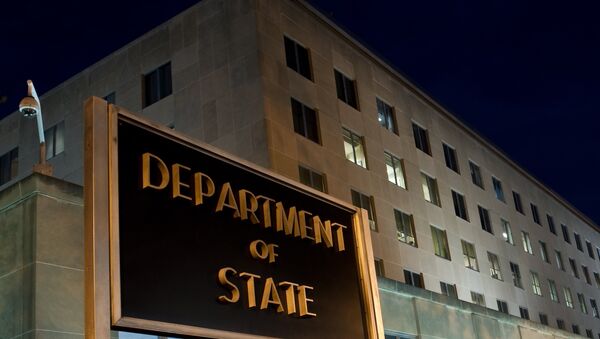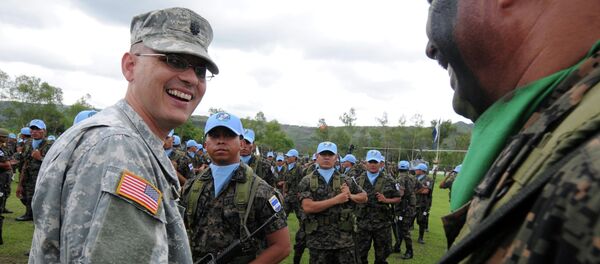In pursuit of its national, regional and international interests, Washington has been using various means of interfering with the domestic affairs of foreign countries.
A coup which is in fact orchestrated by Washington but formally arranged by some national forces is one of those means, the author assumed.
The so-called "mediatory coup" is used when a super-power wants to organize a revolution in a country to protect or expand its own interests in the region, Purmohammad explained. Usually, such a revolt is arranged by some national group or force which is heavily supported by the super-power.
For instance, after in the 1950s Iran decided to nationalize its oil producing industry and began struggle for its sovereignty and independence, the US and its allies decided to topple the Iranian national government, he wrote. During the next three decades, several efforts to stage a coup were made in Iran, but they failed.
Since the second half of the 1970s, the US foreign policy has involved the strategy of toppling those leaders who have countered the dominance and ambitions of the West, according to Purmohammad. A coup is organized by the US to find new allies in countries or regions which previously countered the US hegemony.
According to him, over the 20th century the US took the role of an interventionist which actively meddled in the domestic policy of different countries, especially in Central American and the Caribbean. The institutions required for that were created between 1898 and 1938.
Even after the Cold War ended the strategy retained its role and still is in use, the author wrote.
After the Cold War ended and the Soviet Union collapsed one of the US main goals in the international arena has been to keep the existing world order. This is why a mediatory coup is still one of the principal instruments of the US foreign policy, the author concluded.




